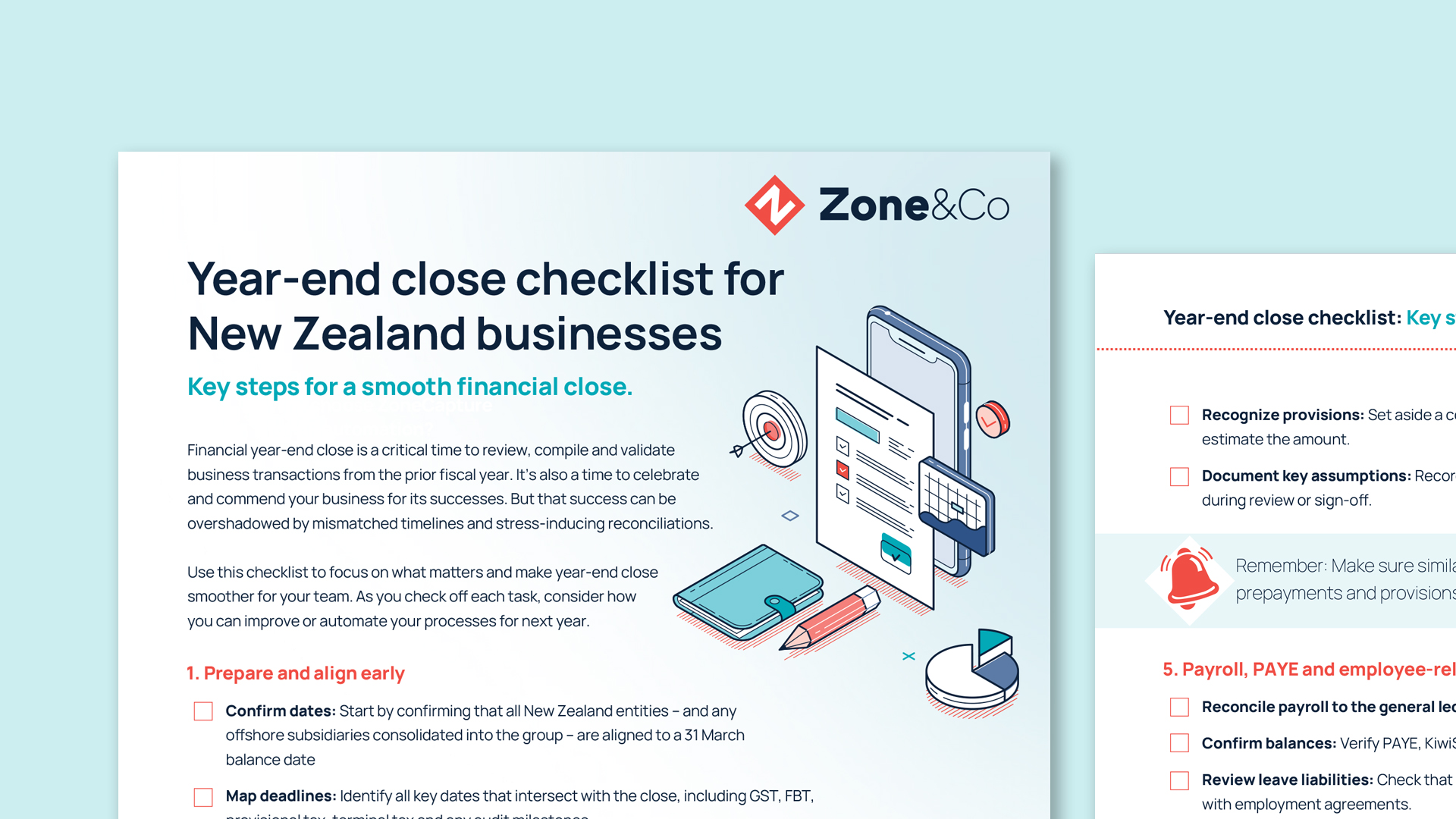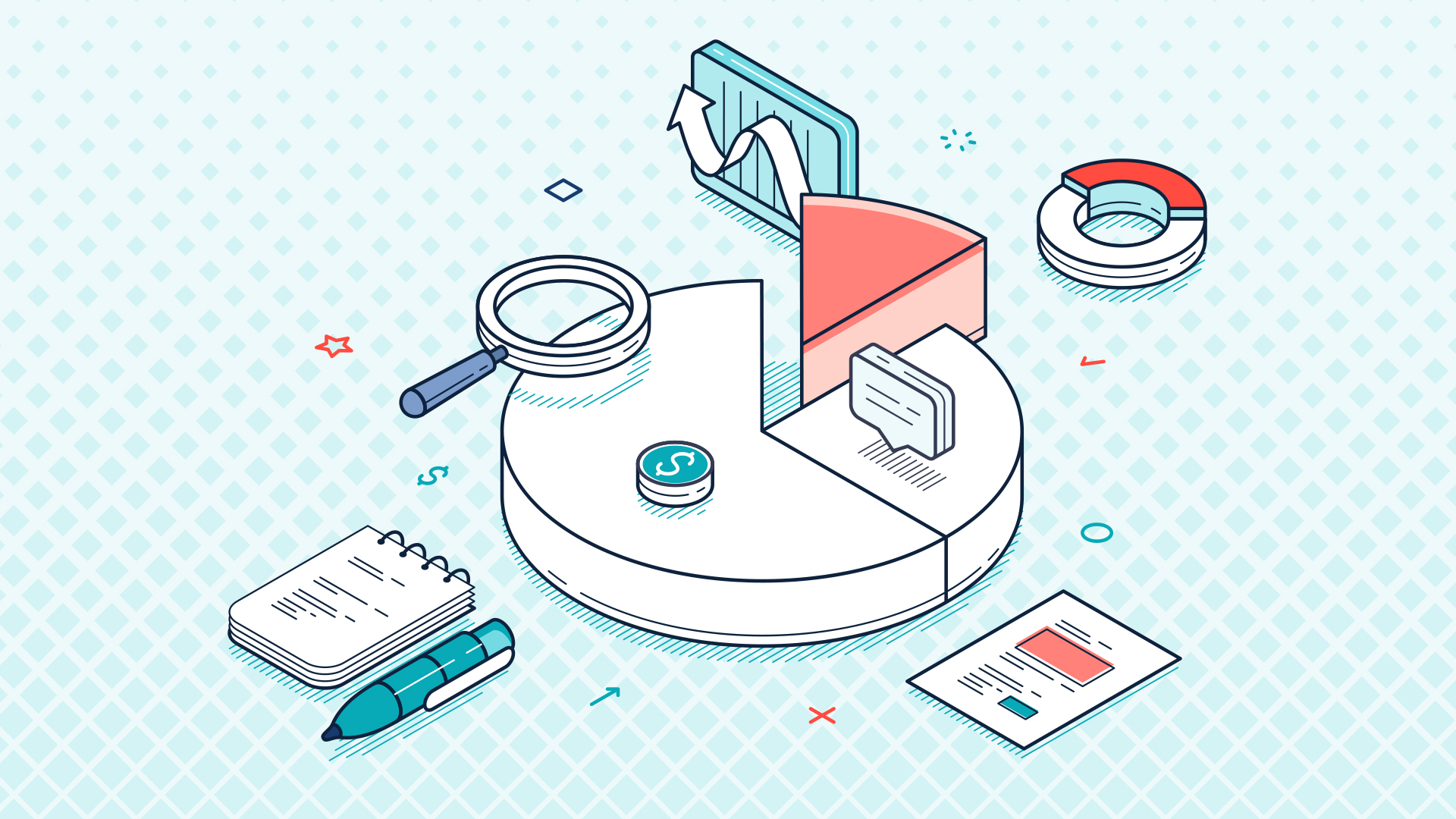How to know when it's time to transition to an ERP

Growth is the sign of a healthy business, but that doesn’t mean every system you’ve built will be a part of tomorrow’s success. An enterprise resource planning (ERP) platform can centralize your company’s data pipeline to optimize everything from your order-to-cash cycle to business intelligence (BI) tools for C-suite executives.
But is now the time to undertake an ERP implementation? If you’re one of the 50% of businesses that think a digital transformation is the key to unlocking future growth, here’s the critical information you’ll need to know to make the most out of this game-changing investment.
Double down on today, or invest in tomorrow?
When the great team that helped build your business suddenly can’t keep up, it’s probably not them. For instance, if they’re manually reconciling all your data in Excel spreadsheets, adding another employee will ease the workload… but this investment doesn’t solve the efficiency problem or support other aspects of your business.
You’ll just have to keep hiring more people as you grow, which inevitably produces communication issues, workflow complexity, and increases errors, all without improving inefficiencies in your current systems.
Signs you need an ERP
As Tyler Santos, VP of Engineering at Zone & Co, explains: “Whenever you’re starting to ask yourself questions like ‘Should this be less painful?’ or ‘Can this be better?’, usually, the answer is ‘Yes.’ These are some of the first red flags that you need a different solution – and it’s probably an ERP upgrade.”
If you’re echoing these concerns, it’s time to examine your business strategy through the lens of an ERP investment by answering the following:
- Are we losing time with our current processes? If so, where? And why?
- Are there current inefficiencies that are preventable?
- Is manual work getting in the way of scaling?
- Are we over-engineering solutions when an investment is justified?
- Could one product improve multiple areas of the business?
- Would automation significantly improve workflows?
- Are we unable to get where we want to go with existing platforms and systems?
Any of these may indicate transitioning to an ERP could enhance multiple aspects of your business while supporting future growth.
Zone & Co’s roadmap for ERP implementation
Investing in an ERP solution is a big step for organizations. Yet too often, the transition process fails. This results in expensive shelfware that helps no one and drives CFOs crazy with significant costs and waste from a lack of adoption and poor implementation.
If you don’t handle the onboarding process properly, it will be nearly impossible to get the full value out of your new ERP system. Even if you invest in a best-of-class tool like NetSuite, you’ll want to evaluate your needs and take a phased approach to the ERP process that allows your business to fully embrace its benefits.
Step 1: Evaluate your business needs
Before getting an ERP, you’ll need to know what you want it to do. “If you’re looking to install a new ERP in your business,” Tyler advises, “identifying the problems you have in your current processes and areas that are working well can help you create valuable buckets of capabilities. Those will inherently tell you what you need from your system.”
For instance, if journal entry is strong but billing is weak, it may indicate deeper issues surrounding order-to-cash (O2C) maturity. ERP implementation may represent an opportunity to solve the current problem while simultaneously enhancing and future-proofing many other aspects of the business.
By addressing the challenge through digital transformation, your company will benefit from standardized O2C workflows throughout its financial system that ensure processes are optimized and scalable. That way, your finance team is equipped with a solution that minimizes disruptions from growth and emerging complexity.
Step 2: Align your strategy
Knowing where your business is going in the future is paramount to successful ERP implementation. Organizational plans to grow and scale, stay private or go public, or expand into new territories all have significant implications for what you’ll expect from the ERP.
Take the time to map out:
- Capabilities you absolutely need to have now
- Capabilities that are helpful but not necessary today
- Capabilities you don’t need now but will need in the future
Also, at this stage, it’s worth considering the value of investing in a few key roles to help with the ERP transition process. Even if you’re using a widely adopted platform like NetSuite, there are many pitfalls and missteps that can be avoided with the right people in place.
Step 3. Select a system
Once you understand your needs and strategy, it’s time to consider whether an on-premises, cloud or hybrid system would be ideal. Each of these options has its pros and cons, and each may make more or less sense depending on the structure of your operation.
On-Premises Systems
If you opt for an on-premises ERP solution, you’ll benefit from a high degree of customization, complete control over upgrades and subsequent disruptions, and total ownership of your data security. These options are especially valuable if you have legacy systems that you plan to keep for the foreseeable future and simply need to maximize their capabilities. However, on-premises ERP implementation has the potential to be the most detailed of any choice.
Cloud ERPs
If you are looking for a low-cost, easy-to-implement solution, cloud ERPs may be the perfect choice for your business. These products provide a lot of instant functionality and scalability through robust accessibility, visibility, and security.
NetSuite is a classic cloud ERP system, and it’s used by thousands of businesses around the world. NetSuite ERP implementation is relatively straightforward, and it’s even possible to extend your instance’s capabilities with software integrations like ZoneBilling to optimize its functionality for your particular business needs.
Hybrid ERPs
If you are in an industry that demands some in-house functionality but can benefit from low-cost cloud solutions in many areas, a hybrid ERP might be an ideal choice.
When considering hybrid options, you’ll want to have a very clear understanding of your current and future strategies. That will guide you to a combination that maximizes every dollar you spend on in-house customization while extending your budget as far as possible with cloud solutions.
Step 4: Design, develop, test
Once you’ve selected an ERP, you’ll need to create plans for how it will be implemented and test its functionality before going live. These steps will form the foundation of a successful rollout.
- Design: How will you migrate data to the new ERP and customize your existing workflows?
- Development: You’ll need to create training materials, import data, and begin configuring legacy systems.
- Test: Make sure everything works as intended and there are no serious problems in the system.
Step 5: Deploy with a phased approach
Once you pick an ERP, it’s tempting to start automating every process as quickly as possible. However, methodical ERP project management is key. Your team will need time to adjust and explore the capabilities that are most valuable – and that doesn’t happen overnight.
Too often, ERP implementation is a process where companies make multiple errors early in the adoption process, such as:
- Immediately moving all processes onto the ERP
- Adding too many modules
- Onboarding too many users
The end result of these mistakes is complexity, frustration and software avoidance. And all three can turn what should be a business-changing solution into shelfware.
“Instead of rushing modules and user onboarding, just start with a small subset of your employee population to introduce new features that are needed in your processes and then grow from there,” says Tyler.
This way, a small number of employees get familiar with the platform in a manageable way, increasing their comfort with the new system and turning them into your ERP champions. Over time, you can gradually introduce new modules to more users and allow these champions to coach others on the platform, ensuring company-wide adoption and success.
Step 6: Post-implementation support
As your business explores the new ERP platform, challenges will inevitably arise that require you to adapt. In order to maintain buy-in and achieve success, take these measures:
- User feedback: Periodically check in to ensure your ERP is meeting user needs and expectations.
- Training: As you implement and expand your ERP’s footprint, make sure everyone understands how the system works and how it will benefit them.
- Maintenance and support: If your ERP doesn’t work well or breaks down, it will frustrate your people and discourage them from transitioning their workflow.
- Focus on performance: Whether it’s making life easier for your people today or supporting new growth tomorrow, ensure your ERP is contributing to greater success and underpins the development of valuable future processes.
- Keep in touch: Partnerships with software developers are a relationship just like any other. Make sure you keep communication lines open with your counterparts and provide them with useful feedback so they can help you maximize what their ERP can do for your business.
Are you ready to transform your business with an ERP?
Investing in an ERP is one of the most important steps any business can take, but maximizing your investment takes a lot of preparation and an ongoing commitment to success.
To get more detail about the ins and outs of ERP implementation and whether you’re ready to take the plunge, check out Zone’s in-depth podcast episode “When is the right time to transition to an ERP?” featuring more key insights from Tyler Santos.
FAQs
- What are the phases of an ERP implementation plan?
- Start by identifying your current business needs and future strategic goals, and then take a phased approach to onboarding your new platform. Make sure you provide post-implementation support to maximize your investment.
- Which is the most difficult phase in an ERP implementation?
- Every step is critical, but phasing in ERP implementation requires long-term patience, support, training, and communication with your team.
- How can you avoid ERP implementation delays?
- By evaluating your current business needs and future goals, you can avoid costly delays by developing an effective ERP implementation strategy.
- Are the implementation phases different if you use cloud ERP vs. on-premises ERP?
- No. Regardless of your platform choice, you will need to follow all of these steps to successfully implement your ERP system.
- How important is executive sponsorship in the early phases of ERP Implementation?
- Adopting an ERP is a major business transition that requires solid executive sponsorship to support alignment, communication, resource allocation, and accountability for project success.
- What is ERP implementation life cycle?
- Businesses will need to evaluate their business, develop a strategy, select an ERP, design and test the system, phase in the solution, and follow up with post-implementation support.
Recommended resources
Get a Personalized Demo Today
Start a conversation with an expert who asks thoughtful questions and shows you how Zone & Co can solve your unique problem.






